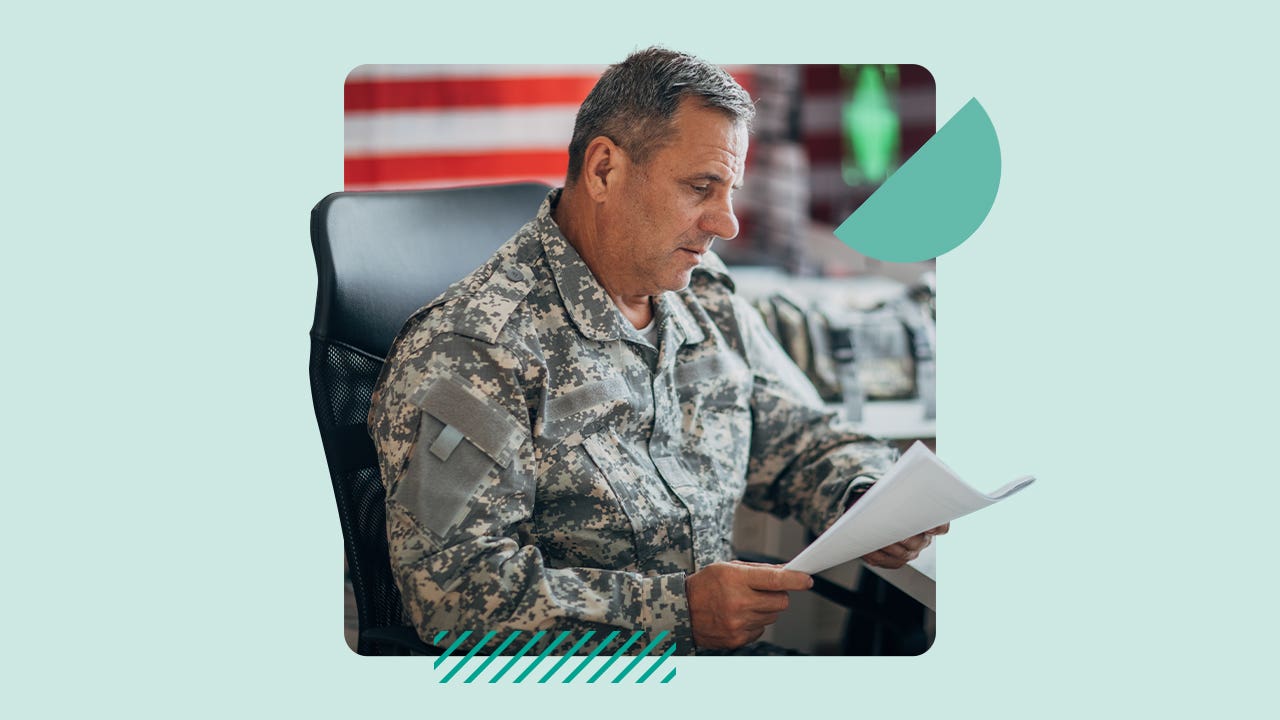17 small business grants and resources for veterans

Key takeaways
- Veteran business owners have more difficulty securing capital than non-veteran business owners
- Grants for veterans are available from various sources, including nonprofits and corporations
- In addition to grants and funding, certain resources offer veteran business owners mentorship, workshops and training
Veteran-owned businesses play a significant role in the U.S. economy. The U.S. is the home of 1.6 million veteran-owned businesses that hire 3.3 million workers, according to the U.S. Chamber of Commerce.
But despite their great impact, a report from the SBA and New York Federal Reserve found that veterans often have a more difficult time accessing capital than non-veteran business owners.
Fortunately, many federal, state and private organizations offer small business grants for veterans, which can be used to grow or start your business. Here’s where to look and how to apply.
Business grants for veterans
1. Second Service Foundation
The Second Service Foundation Grant lets participants pitch their business before a group of judges. Grant amounts can vary from event to event, but in 2019, the first-place winner received $15,000, the second-place winner received $6,000 and the third-place winner received $4,000.
The Second Service Foundation, formerly the StreetShares Foundation, is a nonprofit organization that helps veterans create or grow their businesses by providing funding through its grant program — the Military Entrepreneur Challenge.
-
You can view the list of upcoming events to register for the next one you’re able to attend. To apply, applicants must:<br />
- Be at least 21 years old
- Be a veteran, Reservist, National Guardsman or transitioning active-duty Military Member
- Be low-income
- Own at least 51% of the business
2. Warriors Rising Small Business Grants
Warriors Rising is a nonprofit organization founded by veterans in 2015 that offers small business grants and mentorship to veterans and their immediate family members. Members are called “Veterepreneurs” and undergo a six-step process that includes Zoom coaching sessions and one-on-one mentorship.
Part of the process is a “Business Shower.” Almost like a baby or bridal shower, a business shower helps set the veterepreneurs up for success by providing grants, contacts with clients and investors, and essential tools and services like web design or equipment.
-
You can apply online to become a Vetrepreneur. If your application is accepted, you’ll receive a confirmation email, followed by a phone call to discuss the next steps. Afterward, you’ll receive onboarding documents to fill out via email.
3. Grants.gov
Grants.gov is an online database where you can search for various federal grants. Grants are offered by several government departments, including the U.S. Department of Veterans Affairs and the U.S. Department of Defense.
-
To apply, you have to create a Grants.gov account. Before you apply, make sure to review the grant’s eligibility requirements.
4. Hivers and Strivers
Hivers and Strivers is an investment group that invests only in veteran-owned businesses. You receive between $250,000 and $1 million in funding in exchange for equity in your company.
The firm encourages pitches about “highly scalable” ideas. Though not technically a grant, veterans may be interested in this potential funding source.
-
You can submit your pitch online via Hivers and Strivers’ website. Cannabis or lifestyle businesses and companies that secure government contracts don’t qualify.
5. Small Business Innovation Research program
While not specifically for veterans, this program offers a great opportunity for entrepreneurial veterans with a new idea. The Small Business Innovation Research (SBIR) Program offers funding in two rounds: $150,000 in the first round and up to $1 million over two years in the second.
-
To apply, you can register with the SBIR Program and contact a funding agency. Each agency will have different application processes and requirements.
6. VetFran
VetFran is an organization that helps match veterans to franchisors looking to expand their businesses. Usually, new franchisees need to pay high fees to buy a franchise and start their business, but the companies working with VetFran offer discounts and other assistance to veterans looking to go into business. For some franchisors, the discount is 100%.
-
Each franchisor has a different application process. To apply, you can visit VetFran’s list of franchise partners and look at opportunities that interest you.
7. National Association for the Self-Employed
The National Association for the Self-Employed (NASE) offers grants of up to $4,000 to members who want to grow their self-employment business by marketing, expanding facilities or hiring employees.
Veterans can apply immediately after joining NASE rather than waiting for the typical period.
-
You can apply online on NASE’s website after you join NASE. While applying, you’ll have to provide:<br />
- A business need
- A detailed explanation of how you’ll use the funds
- How the grant and the detailed use you provide will satisfy the need
- How the grant will impact your company’s growth and success
8. Veteran Readiness and Employment
Veteran Readiness & Employment (VR&E) is a program aimed at helping veterans with service-connected disabilities find a job as they return to civilian life. Its self-employment track is designed to help veterans start a business and offers help with business planning, training in marketing and finances and other support.
While VR&E doesn’t offer grants directly, it can help match veterans with grants and other funding opportunities.
-
You can apply for the VR&E self-employment track online, in person, or by mail. To be eligible, you must have a service-connected disability. After applying, you’ll meet with a Vocational Rehabilitation Counselor to determine full eligibility.
9. Michigan Veteran Entrepreneur Lab
The Michigan Veteran Entrepreneur-Lab (MVE-LAB) offers a three-month accelerator for veteran-owned businesses and military spouses. Participants get hands-on education in how to run a business and can win up to $20,000 in grant money after pitching their business during the program’s pitch showcase.
-
This program is for veterans located in the state of Michigan. You can start the application process by filling out an online form. There are also in-person intro sessions prior to each cohort’s start.
10. Texas Woman’s University Veteran Woman Grant
The Texas Woman’s University Veteran Woman Grant awards $5,000 each to five different recipients each year. This program focuses exclusively on female veterans who live in Texas and runs once each year.
-
Applications are accepted in the first part of each year. To be eligible, you must be a female veteran who has at least 51% ownership in an existing or to-be-formed business.
11. Maryland Military Personnel and Veteran-Owned Small Business Loan Program
The Maryland Military Personnel and Veteran-owned Small Business Loan Program (MPVOLP) is a program that offers interest-free loans up to $100,000 to companies owned by veterans, Reservists and National Guard members called to active duty. Loan terms range from 1-8 years.
Though this isn’t quite a grant, an interest-free loan can be a boon for new companies that need additional funding.
-
You’re eligible to apply if your business is veteran-owned, owned by military reservists and National Guard members called to active duty or a business with fewer than 50 employees that employs veterans. Applications for the program close near the end of August each year. Veterans can submit their applications to the Maryland Department of Commerce. You have to submit:<br />
- A business plan with three year’s projections
- Sources and uses of funds
- Personal financial statements
- Listing of all owners
- Resumes for the principal owner(s)
- Personal and business tax returns from the last two years
- An explanation of any personal or business funds that will go toward the project
- An explanation of the collateral used to secure the loan
12. Venmo Small Business Grant
Through the Venmo Small Business Grant, twenty small business owners will be awarded $20,000 grants and receive mentorship and promotion on Venmo’s social channels.
-
To be eligible, you’ll need a U.S. Venmo Account, a valid business profile in good standing, make less than $50,000 annually and have 10 or less employees. The application period typically takes place in May, and winners are announced in July.
13. Stephen L. Tadlock Veteran Grant
Founders First supports diverse business owners by providing growth programs, coaching, and small business grants for veterans. In honor of U.S. Navy veteran Stephen L. Tadlock, brother of Founders First’s CEO, Kim Folsom, this grant awards $1,000 to 25 veteran-owned businesses nationwide.
-
Grant applications are being accepted through October 16, 2023. The grant is open to U.S. veterans who own small businesses with two to 100 employees and less than $5 million in annual revenue. You must be in business for at least one year to qualify.
14. Founders First Job Creators Quest Grant
The Founders First Job Creators Quest Grant offers small businesses a chance to secure growth capital. Twenty-five grant recipients not only receive their share of $100,000 but also gain access to Founders First accelerator programs through scholarships. Selected businesses operating within Los Angeles, Orange County, Riverside, San Bernardino, Imperial, and San Diego must be willing to add at least one or two new premium wage jobs in the next year.
-
Pre-registration is open. Full applications become available in mid-October. Veteran-owned businesses with at least two employees and an annual revenue of $100,000 to $3 million are eligible.
15. FedEx Entrepreneur Fund
FedEx, in collaboration with Hello Alice and the Global Entrepreneurship Network (GEN), has initiated the second phase of the FedEx Entrepreneur Fund. This initiative aims to aid entrepreneurs by providing thirty $10,000 grants and educational support, with military-affiliated and disabled entrepreneurs taking priority.
-
To apply, register for a HelloAlice account and complete an application by early October. Eligible businesses must be at least 51 percent owned by a military-connected entrepreneur, have a staff of no more than 25 and annual revenue under $7 million.
16. GrantWatch
GrantWatch serves as an online platform that compiles non-profit and small business grant offerings in the United States. You can explore grants that align with your business requirements and qualifications, including those specifically designed for veteran-owned businesses.
-
Access to GrantWatch’s database requires the creation of an account. Business owners can choose from multiple membership levels ranging from $18 weekly to $199 annually.
Business resources for veterans
Grants are just one source of assistance for veterans. There are many other programs that can offer loans, equity-based funding or advice.
Veteran Business Outreach Centers
The SBA operates these outreach centers around the country, concentrated in or near major cities. These centers have workshops, help with business planning and research and can connect you to community partners.
Boots to Business
Boots to Business is a two-step training program offered by the SBA. It involves a two-day course that introduces you to entrepreneurship and gives you the basic information and skills you need to start a business.
Veteran Institute for Procurement
The Veteran Institute for Procurement (VIP) is a program that helps veterans who own businesses. VIP trains in strategies for landing contracts from the federal government and other government entities. It has five programs that are suitable for companies at any point in their lifecycle.
bUSA
bUSA is an online database with a wealth of information on state and federal programs that can help veterans start businesses and secure funding.
State-based and other local programs
Look for programs run by your state government or local nonprofits. Many have programs aimed at veteran-owned businesses. For example, veterans in Michigan can take advantage of Grand Valley State University’s Veteran Entrepreneur Lab, a three-month program that can help veterans start a company.
Alternatives to small business grants for veterans
Although veteran small business grants can help you start or grow your business, they might not be the best choice for you. Grant programs are usually competitive, and the grantor might only allow you to use the funds for certain purposes.
If you’re looking for funding options that are generally easier to qualify for, come with fewer restrictions and are more widely available, consider the following alternatives.
- Small business loans. You can also pay for business expenses with a veteran business loan from a traditional bank, credit union or online lender. Unlike a business credit card, a small business loan comes with a lump-sum payment you repay over time in fixed installments.
- SBA loans. There are several types of SBA loans, including 7(a) for general purposes, CDC/504 for real estate and equipment purchases and microloans for small capital needs. They support businesses with funding for startup, expansion, working capital and more, and they come with competitive rates and extended terms of up to 25 years.
- Business lines of credit. With business lines of credit, you have access to a revolving supply of cash that you can use as needed and only pay interest on the outstanding funds.
- Business credit cards. If you get a business credit card, you can borrow against your credit limit to pay for any business expense. You can also build credit. Business lines of credit work similarly but lack features found with many business cards, including grace periods and the chance to earn rewards.
- Borrow money from a family member or friend. A family member or friend might be willing to give you a loan with little or no interest. Discuss repayment terms first if you find someone willing to let you borrow money. And then pay it back as promised to avoid causing harm to your relationship.
- Crowdfunding. This method relies on raising small amounts from a large number of people. It can work well for community-focused businesses or those looking to pre-sell products, raising the funds they’ll use to produce goods to ship to funders.
The bottom line
Whether you’re a veteran looking to grow your business or start a new one, searching for veteran business grants can be a good solution. Grants can provide the funding you need — and a major benefit is that they don’t have to be repaid.
Frequently asked questions
-
Each grant program has different qualification requirements, so you’ll need to check with the granting entity. Requirements usually relate to your veteran status, the size of your company, and the industry you operate in.
-
Veteran-owned businesses have many advantages when it comes to factors like marketing and drawing in customers. They also get priority when bidding on federal and state contracts, access to veteran grant programs, and other perks.
-
No, the VA does not offer business loans. But other lenders like banks and online lenders may offer business loans for veterans.
Why we ask for feedback Your feedback helps us improve our content and services. It takes less than a minute to complete.
Your responses are anonymous and will only be used for improving our website.
You may also like

The risks of financing a small business

Can you get a small business loan after bankruptcy?

Small business financing: Your options

20 small business grants for minorities


